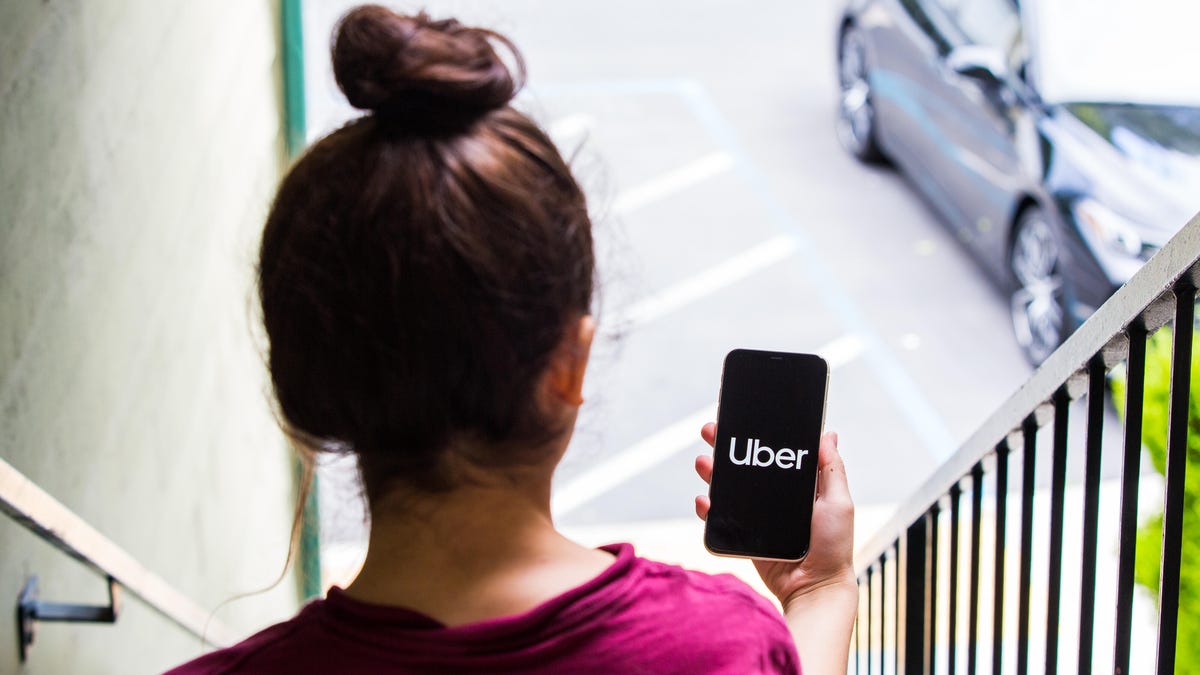Uber works with #WhatsMyName to make sure riders get in the right car
After Samantha Josephson was killed by someone impersonating a ride-hail driver, both Uber and Lyft partner with her parents to raise awareness around safety.

Uber and Lyft have partnered with the #WhatsMyName foundation.
It's been more than a year since Samantha Josephson unknowingly got into the wrong Uber car late on a Friday night in Columbia, South Carolina. Fourteen hours later, the 21-year-old was found dead in a wooded area about 90 miles away.
For Josephson's parents, the pain of her death is still agonizing.
"Every time we talk about it, it's hard," Samantha's dad, Seymour Josephson, said over the phone as he choked back tears. "But it's something we have to do."
After Josephson was murdered, her parents made it their mission to make the ride-hailing industry safer. They started a foundation called #WhatsMyName that's geared toward raising awareness about passenger safety and pushing companies and lawmakers to create policies that make rides more secure. Part of the goal is to get people to ask "what's my name" before getting into any car.
Uber announced Wednesday that it's partnering with the #WhatsMyName foundation to help in its cause. Through the partnership, Uber said, it will aim to amplify the foundation's message using its massive international scope. Uber has more than 100 million active riders and is in more than 70 countries worldwide.
"What happened to Samantha was just horrifically tragic," Tracey Breeden, Uber's global head of women's safety, said in an interview. Breeden, a former police officer who's worked for more than a decade on preventing violence against women, said Uber had been asking "what can we do next to really increase awareness around rideshare safety?" Partnering with #WhatsMyName seemed like the right fit.
Lyft announced on Wednesday that it's also partnering with #WhatsMyName to help educate college students about safe riding. Jennifer Brandenburger, Lyft's director of public policy for community safety, said in a statement that, "While the tragedy involving Sami Josephson didn't happen on the Lyft platform, we're committed to enhancing safety across the entire rideshare industry."
That industry has been plagued by safety issues for years. Hundreds of passengers and drivers have come forward alleging sexual assault during rides. Several lawsuits have been brought against Uber by people saying they were raped, kidnapped or groped by the service's drivers. Similar allegations have been made against Lyft, which has been sued by about 60 women over the last year alleging sexual assault by its drivers. Both companies have also had multiple issues with people posing as drivers and picking up unsuspecting riders.
Last December, Uber released its first "safety transparency report," which detailed incidents that happen on its platform. It said 99.9% of rides ended without an issue, but problems did occur. In 2018, about four rapes per week happened during Uber rides, not to mention a yearly tally of thousands of incidents of sexual assault ranging from unwanted kissing to attempted rape. Lyft has yet to release this type of data.
"Passenger safety is the most important issue. If passengers aren't safe, then ridesharing isn't viable," said Bryant Greening, an attorney with LegalRideshare, which represents riders and drivers. "Most people aren't going to be victims of crimes, but you need to take proactive steps to make sure you're not a statistic."
To combat assaults, Uber has added several safety features to its app over the past couple of years. Those include: RideCheck, which sends a push notification to drivers and riders if there's an unexpected long stop along the way; on-trip reporting, which lets riders report an incident before the trip has ended; and a text-to-911 feature that includes location information and the car's make, model and license plate number.
Uber has also created a ride verification system that gives passengers and drivers a unique four-digit PIN. This lets both parties confirm they've connecting with the right person before the ride begins. This type of technology is crucial in working to avoid situations like what happened to Josephson, her father told CNET.
On the Friday night that Josephson disappeared, she was out with friends and called an Uber to get home. A black Chevy Impala pulled up and she hopped in. Police later found that the child safety locks in the car were activated, which likely stopped her from being able to escape.
The following morning, Josephson's roommates called the police after she didn't come home. As the authorities began their investigation, hunters found her body in the woods about 40 feet from a dirt road. Nathaniel Rowland, 24, was arrested and charged with the kidnapping and murder of Josephson.
Josephson was a senior at the University of South Carolina and had planned to start law school the following year. Josephson's mom, Marci Josephson, said her daughter was always smiling and had a good sense of humor. "She'd light up the room," Marci said.
"I think she would want us to try to make life safer for people, so this wouldn't happen again," she said.
Josephson's parents have toured college campuses to tell their daughter's story and to warn others to pay attention when catching rides with Uber and Lyft. They've also gotten several colleges, towns and cities to create specified pickup zones that have placards with steps passengers can take to be secure, such as asking the driver "what's my name" and confirming the license plate number.
"It's about trying to make this as safe as possible," Seymour Josephson said. "If they can follow just one or two of those steps, then we've done our jobs."

